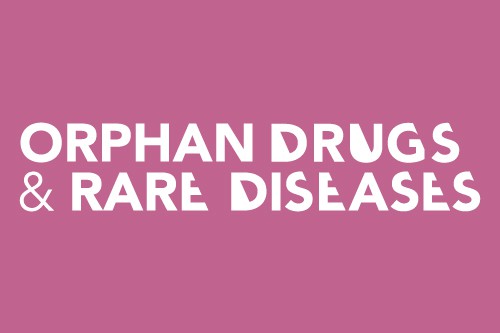
The societal needs associated with diverse orphan conditions have been the driving force for EU legislation over the past decade. This legislation has supported an increased rate of EMA orphan drug authorisations since it was enacted in 2000, however while more orphan drugs are authorised, this has not always translated to improved access and reimbursement at a national level.
Within the context of our cost-constrained economy, we are becoming more adept at applying empirical methods of drug evaluation to prioritise our health expenditure at a national level.
However the systems used to determine value are not fit-for-purpose and do not allow enough scope to incorporate the greater level of societal burden that can be associated with orphan conditions. Our use of incremental cost effectiveness (where the value of a new intervention is compared against an appropriate comparator) highlights one of the key issues with applying such systems to orphan drugs – an appropriate comparator for an orphan condition may not exist. We have seen examples in the German system where demonstrating the comparative benefit of a rare drug versus a heterogeneous mix of treatments has been a barrier to reimbursement.
Additional challenges when using preferred methods for economic evaluation with orphan drugs include:
- Small patient numbers, often geographically spread, thus making trial recruitment difficult and robust clinical evidence hard to generate
- Rare diseases are diverse and commonly the disease history and pathophysiology (functional changes associated with or resulting from the disease) are unknown or poorly documented thus making clinical endpoints and appropriate surrogate markers (eg quality of life) difficult to define
- Lack of expertise and understanding of rare diseases may hinder Health Technology Assessment (HTA)
- The high acquisition costs associated with orphan drugs will continue to appear astronomical without an appropriate frame of reference that accounts for patient and societal burden.
We believe there are a number of key factors that will enable the pharmaceutical industry to more effectively demonstrate value for their orphan drugs.
Rigorous planning and engagement
Agreement of the correct (most relevant) end point(s), selection of the most appropriate study control and statistical methodology will support authorisation and improve chances for successful reimbursement.
Scientific advice actively sought early in the clinical development programme allows manufacturers to attain the benefit of rigorous clinical discussion and mutual understanding between stakeholders. Discussion with the approval body (European and national level) as well as key medical, payer and patient advocacy group (PAG) stakeholders in the disease specific domain are critical. Engagement will provide a strong foundation for programme development and will support the value proposition and achieve approval success.
Make registries fit for purpose
Work proactively with evaluating bodies and governmental and clinical stakeholders to explore how registries can be implemented at a European level. Consider if data can be collected at a disease level rather than an individual drug level, in order to give a better chance of demonstrating the value of new medicines.
A key mechanism to support accrual of clinical effectiveness and safety data (where post authorisation activity is prescribed by the EMA) is through the initiation of patient registries. If a post-market registry is required, it is important to note that all registries are not created equal. The key criticisms of current registries are that there have been variable quality and completeness of the data collected, a lack of transparency in how the information is managed and fragmentation of data preventing more prompt and meaningful interpretation of outcomes.
Invest in education
Improved stakeholder knowledge and understanding of a clinical area will support fitting evaluation based on evidential uncertainty.
Across the diverse range of orphan conditions, it is important to ensure that a range of clinical stakeholders are educated about the disease and aware of the associated societal burden. Educated stakeholders are empowered to act and find solutions when equipped with the right information.
Get analyses and modelling right
Quantitative analysis can provide another tool to support interpretation of the results of small clinical trials by use of pharmacometrics. Similarly explore options for modelling early to communicate economic value successfully.
Pharmacometrics uses quantitative analysis of clinical trial data to answer questions on the shape of the dose response curve, the magnitude of treatment effect, the minimal effective dose, the best dose for benefit and / or risk and helping to define how doses should be adjusted in special populations. It is worth exploring if this type of analysis could be used in your studies when engaging with regulatory stakeholders.
Orphan drugs are notoriously challenged in economic evaluations. Questions about clinical effectiveness due to limitations in trial evidence tend to result in high uncertainty around the incremental cost-effectiveness ratios (ICERs). Take time to engage with HTA bodies (where feasible) and explore all health economic possibilities to create the optimum base case for your drug.
Rise to the challenge
EU legislation has created a system where an increased number of orphan drugs are authorised yet patients are prevented from comprehensive access through national level reimbursement barriers. Demonstrating the value of orphan drugs can be challenging based on the current frameworks used to evaluate drug benefit. With a European Union population of approximately 500 million, this means that the needs of between 30 million and 40 million people need to be met with orphan drugs. Should this trend of authorisation without reimbursement continue, we could be at risk of de-incentivising R&D into these high unmet clinical need areas.
Improved planning for registries, stakeholder engagement, education and HE related decision making will support better generation of data and understanding of the diverse orphan conditions. It is hoped that by creating a more robust and transparent framework for data collection at a European level, HTA bodies will be supported in evaluating orphan drugs in a way that incorporates cost effectiveness with appropriate allowance made for societal impact.





